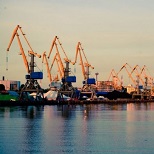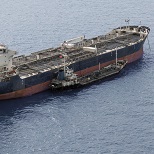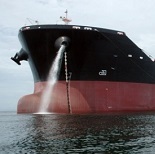Sudden Winter
Severe weather conditions during the 2012 winter obviously caused serious negative consequences for business. Execution of charter parties, sale and purchase contracts in such a situation could be considerably delayed or repudiated resulting in damages and losses for the parties of such agreements.
Both shipowners and charterers under the charter party, or sellers and buyers under purchase and sale agreements are exposed to the consequences of difficult ice, depending on the particular terms of a contract.
In particular, due to severe weather conditions the cargo shipment from a frozen port can be delayed or the obligation on vessel delivery in such port is unfulfilled. Depending on the conditions of a contract a party therefore can be liable for delay of the vessel waiting for ice convoy/loading (demurrage, detention), delay of cargo delivery or for repudiation of the contract as a whole.
Ice and force-majeure under English Law
A lot of standard purchase and sale agreements as well as the majority of charter parties are governed by English law.
Under the English law doctrine a force-majeure clause is interpreted as an agreement between the parties which releases one or both parties from execution of the contract in cases when such performance is impossible in view of the occurrence of force-majeure circumstances listed in the clause. Such failure to execute will not be considered as breach of a contract and will not cause reimbursement of damages caused thereby.
All depends upon what had been agreed by the parties in the force-majeure clause and/or in the ice clause of a contract. If existing weather conditions were directly stipulated in the agreement as force-majeure, the parties should exchange relevant notices and to wait for improving weather conditions to continue contract performance. If not, the parties should come to an agreement on prolongation of delivery (transportation) terms of and/or on redistribution of the losses connected with the delay in transportation. Such new agreements should be duly fixed in order not to become the cause of a new dispute. The best option is to agree the text with your lawyer as the counteragent’s lawyer would hardly protect your interests.
As a rule, under sale and purchase agreements the usual practice is to prolong the terms of contract performance. Only after expiry of such period, one or both parties will obtain the right to terminate the agreement.
The situation with charter parties is different. If the force-majeure clause or the ice clause of the charter party does not interpret the occurred circumstances as force-majeure or such that exclude the charterers’ liability and other similar clauses are not included in the charter party, it is always difficult for charterers to avoid responsibility concerning payment of demurrage or detention in connection with the delay of a vessel. Such disputes are often the subject of arbitration proceedings where the award is made in consideration of all circumstances, intentions and factual actions of the parties.
If a force-majeure clause is duly included into the contract, it usually contains the list of documents and their form (written notice, notification, CCI certificate, etc.) which are to be submitted and/or produced by a party to evidence force-majeure circumstances. Terms of such submission may be also explicitly agreed in a contract. Such terms should be fulfilled very attentively: because of an incorrect formulation, for instance, in the CCI certificate, this can be considered as irrelevant to the matter or invalid for the purposes of a contract. If the agreement does not contain such conditions or they are not specified explicitly, in case of failure to perform the obligations the party, as a general rule, submits a written notice to the counter agent where indicates causes of a contract non-performance (referring to the occurrence of the circumstances), relates such circumstances to the force-majeure (with reference to the force-majeure clause) and informs about the expected terms for contract performance.
Ice dues in Ukrainian ports
At the present moment ice dues shall be paid not by ship owners upon vessel’s arrival at the Ukrainian port, but by cargo owners whose cargos are handled through the Ukrainian ports. They are calculated on the basis of cargo tonnage shipped for a certain period from a certain Ukrainian port. Each port usually stipulates such period depending on weather conditions.
Ice dues are subject to payment in compliance with Tariff Catalogue for a set of works related to cargo processing at ports of Ukraine, as approved by the Order of the Ministry of Transport of Ukraine No.392 dd. 31.10.95.
Every year there are many disputes arisen upon the reason for charging ice dues on cargo owners who have no direct relationship with a vessel. Such dues usually cover port services upon ice and snow removal from berths and approach routes, maintenance of loading equipment in severe winter conditions. Moreover, ice dues are provided to be paid for services of ice-breakers, tow boats and other watercraft which provides vessel passage through channels and port water area.
We consider that at the present moment ice dues shall be deemed as obligatory payment irrespective of certain services, because they are subject to payment even without notification on ice campaign and without the fact of ice formation. Moreover, there shall be fixed special payment for actual services of ice-breaking watercraft.
State authorities perform some maintenance work upon prevention of errors arisen last year during winter navigation. The List of Specialized Services provided at sea port by natural monopoly entities which are subject to governmental regulation, as approved by the regulation of the Cabinet of Ministers of Ukraine dd. 03.06.2013, includes provision of ice-breaking works. There is Draft Order of the Ministry of Infrastructure on Approval of Tariffs for Services upon Provision of Ice-Breaking Works. Such Draft Order shall implement significant changes in the approach to payment for ice-breaking services. If the conception of this Draft Order is approved, payment for ice-breaking services will be charged at the rate of 1 cubic meter of imputed volume of the vessel, as determined by the Tonnage Certificate. Tonnage Certificate is an obligatory vessel document issued to the vessel by the Flag State in compliance with the law thereof and by the International Convention on Tonnage Measurement of Ships dd. 1969. Ship owners will pay for ice-breaking services in favour of the Administration of Sea Ports of Ukraine.
Recommended ice clauses
Under the results of our practice related to ice situation, we have prepared a special ice clause for purchase and sale agreements which expands and supplements standard provisions of the standard form charter parties, FOSFA and GAFTA contracts, taking into account specific weather conditions and port work in the Black Sea and Sea of Azov.
Maritime business happens to ask for legal assistance only when the circumstances which require for immediate interference have already occurred. The best and the most effective way are to take some preventive measures in advance.
© Nikolay Melnykov, © Natalia Myroshnychenko, 2013
For “Breakbulk”
(1).png)
Cargo transportation by sea is one of the most reliable and most expensive methods of goods delivery worldwide. Sea lines are one of...

A NEW INITIATIVE BY THE MINISTRY OF TRANSPORT AND INFRASTRUCTURE The new regulation that entered into force in 28 April 2021 has impo...

Dear colleagues, Here is Quarterly Shipping newsletter broght to you by Interlegal. Let us present the most valuable cases and n...

The issue of the port and berth safety is among those which raise various disputes between the interested parties. As the reasons for declar...

Although travel restrictions are beginning to ease, there are still restrictions in many countries impacting on crew changes. The new clause...
 Ship arrest in Ukraine: new approaches2020.06.18
Ship arrest in Ukraine: new approaches2020.06.18The concept of one shipowner – one vessel The concept of one shipowner – one vessel arose due to shipowners’ reasonable desire to secure...

Task The Client – large bunkering company making business in Black Sea Region – applied to Interlegal for debt recovery for bunker supply...

Dear Interlegal clients, Please be informed that in the third quarter of the 2019 year significant changes of Ukrainian legisla...

A presidential decree has been published in the official gazette on 03.05.2019 marking the date on which the 1999 Convention officially beca...
 LMAA arbitration notice clause2019.02.27
LMAA arbitration notice clause2019.02.27The LMAA has published a clause for use in arbitration agreements to facilitate effective notice by email (including for commencement of arb...




 Odessa, 65014, Ukraine, 1 а, Gretska St
Odessa, 65014, Ukraine, 1 а, Gretska St
